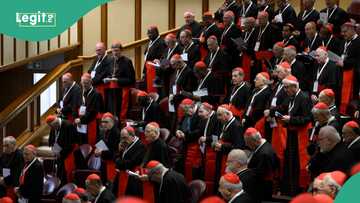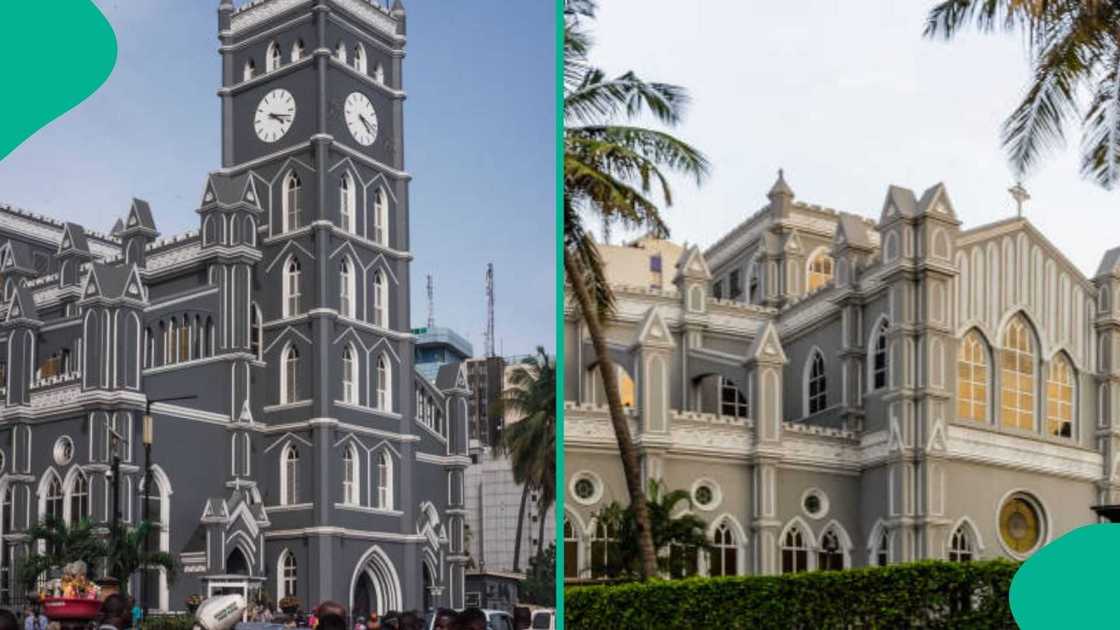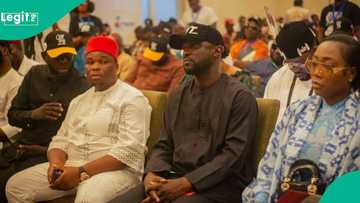African Churches Urged to Cut Billion-Naira Spending on Buildings, 'Build Lives, Not Structures'
- Dr. Benard Andrew has criticised Africa’s investment in expensive church buildings, sharing his perspective with Legit.ng on church priorities
- He emphasised that worship isn’t defined by buildings, referencing biblical history where spiritual connection mattered more than structures
- The counselor urged churches to focus on economic empowerment, advocating the 70/30 principle for investing in people over buildings
Lagos, Nigeria - Christian counselor and theologian Dr. Benard Andrew has criticised the rising investment in expensive church buildings across Africa, sharing his viewpoint in an opinion article sent to Legit.ng.

Source: Getty Images
“One of the significant mistakes Christian leaders are making today is spending so much funds on Church buildings,” he said.
Citing Rentechdigital.com, he noted Africa now has over 45,000 churches, most of them single-owner operations.
Referring to billion-dollar edifices like Living Faith’s Ark, a project by Living Faith Church, founded by Bishop David Oyedepo, he warned,

Read also
Arsenal vs PSG: Sports psychologist slams prophecies, dog predictions as ‘tactically empty’
“Modern churches are spending so much on buildings that will likely not be here in the next 100 years.”
“The sad thing about most of these expensive churches, particularly in Africa, is that they are built with the monies of their poor members who have been brainwashed to think that contributing to the building of some cathedral holds a reward in the afterlife,” he said.
Biblical and historical perspective on worship
Dr. Benard offered a biblical and historical reflection on worship, arguing that structures were never the foundation of spiritual connection.
He explained that in Moses’ time, “God had asked the children of Israel to make him a tabernacle… They spent their money on a tent to easily move wherever they went.”
He said it was only during Solomon’s reign that “a costly structure was built to honour God,” which was later destroyed by the Babylonians.
Andrew further emphasised that physical structures have never defined true worship in Christianity:
“Besides providing shade and rest from the harsh weather conditions, buildings contribute very little to the spiritual development of the Christians.
While noting that early Christian history placed little emphasis on the importance of worship locations, he pointed to the lasting spiritual impact through influential voices.
“It is often and never mentioned, but the voices and exploits of men like Saint Augustine of Hippo, Origen, John Calvin, and Martin Luther still shape the view of Christianity till date.”
Refocusing church priorities on people
The counselor further urged African church leaders to shift their focus from lavish buildings to meeting the urgent needs of their congregants.
“In times like these, especially in Africa, most developing nations are under the siege of starvation and political instability,” he said.
He stressed the need for economic empowerment within churches:
“Church leaders should spend more on the suffering of their people and spending more funds in training them to be self-sufficient economically.”
He added that churches should prioritise creating jobs. “Setting up industries where these impoverished members can work and earn a living” would uplift lives and strengthen nations.

Read also
Two cardinals set to elect new pope break silence, list two challenges before the next pontiff

Source: Getty Images
“History will not remember you for the size of the Church you built. However, history will never forget you for the lives you transform and how that transformation reverberates through time,” Andrew noted.
It is important to mention here that I am not against church building. Far from it; if the people are physically uncomfortable, they are likely to be distracted during worship, but spending billions of naira or dollars (most of it taken from impoverished folks through manipulative means) to build a structure that draws more attention to you rather than God is just not right.
A call to action for sustainable impact
Reflecting on the past, he said,
“There was a time, a generation long gone, when men spoke in the name of the Lord, that kings and captains of industries trembled. They spoke with conviction. They spoke with authority.”
The theologian criticised the current state of affairs, noting that despite having some of the largest churches in the world, Nigeria remains one of the most corrupt and impoverished nations.
“If we are driven by our need to serve or greed and seek divine power to get the people to cower at our feet, that fire to transform nations will continue to elude us,” he stated.
Andrew, however, urged church leaders to apply the “70/30 principle,” committing 70% of funds to member development.
“Build physical structures, but spend much more on building the people. The times are changing faster than we can say Jack, and if we don’t wake up to this reality, in the next 15 to 20 years, most of our edifices will run out of members and be converted to industries or leisure centers,” he warned.
Governor defends church building projects
Legit.ng earlier reported that Governor Bala Mohammed said renovating and building churches is a right for Christian citizens in Bauchi.
He emphasised that Christians deserve equal treatment as Muslims and said his administration builds churches just as others build mosques.
Speaking in Plateau during a condolence visit, he reaffirmed his commitment to religious equality and praised Mutfwang's inclusive governance style.
Proofreading by James Ojo, copy editor at Legit.ng.
Source: Legit.ng




